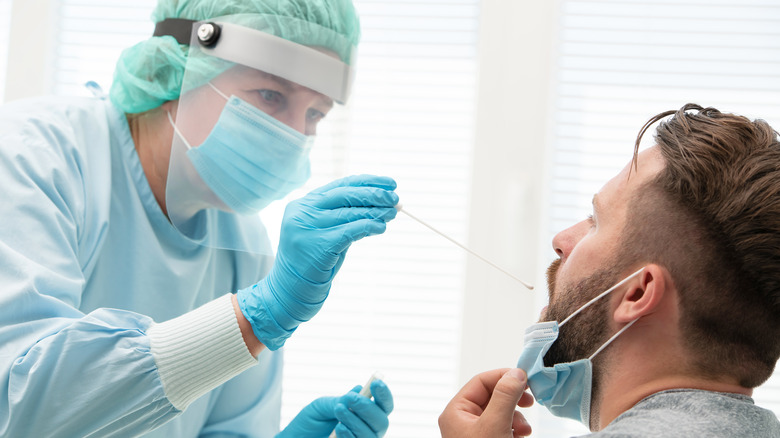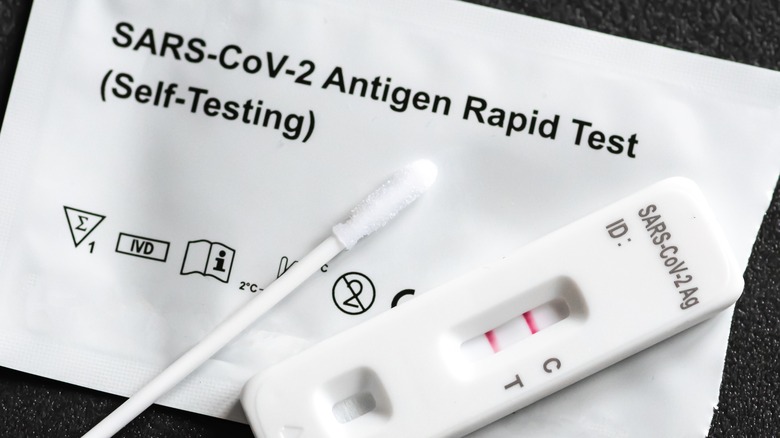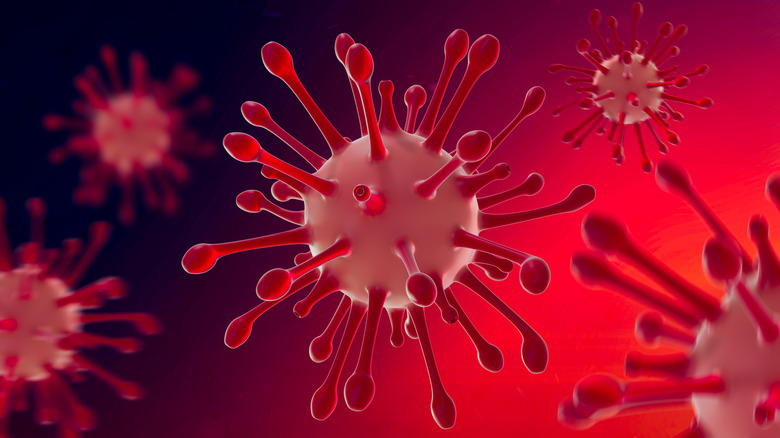Can You Still Have COVID If Your Rapid Test Is Negative?
At-home COVID-19 tests are a convenient way to check if you are infected with the SARS-CoV-2 virus. They are fast, take 15 minutes for results, and don't require you to make an appointment or drive anywhere. The United States government even has a program where you can have free COVID-19 tests mailed straight to your door.
However, there is one drawback to these convenient tests. You can get an inaccurate result if you test too soon. For example, maybe someone you have had close contact with tests positive for the COVID-19 virus. You test, but are negative. Then, a few days later, you develop a runny nose. According to Yale Medicine, yes, you can still have COVID-19 even if your rapid test is negative.
While this is confusing, the answer lies in the concepts of specificity and sensitivity. According to Evidence-Based Nursing, sensitivity is the ability of a test to correctly determine who has a particular illness. Specificity, on the other hand, is the ability of a test to correctly determine who does not. New York State's Department of Health explains that the ideal is to have both high sensitivity and high specificity; however, this is not always possible.
Why sensitivity and specificity are important
Sensitivity and specificity are important to understand because they differ in the two main types of COVID-19 tests available: rapid antigen tests and polymerase chain reaction (PCR) tests. Yale Medicine says that most PCR testing is done at a healthcare clinic or test site. In contrast, the rapid test you take at home is likely an antigen test.
PCR tests were the first tests developed to test for COVID-19. PCR tests work by looking for RNA from the virus. This is genetic material specific to the COVID-19 virus. A small amount of this genetic material will create a positive test result.
In comparison, antigen tests, which are the rapid tests, work by picking up a protein from the COVID-19 virus. To test positive, rapid tests require more of the virus to be present in the sample. So, theoretically, if you are in the early stages of a COVID-19 infection and haven't built up a significant amount of the COVID-19 virus, you could test negative on a rapid test despite actually having a COVID-19 infection.
What to do if you have a negative rapid test
The Centers for Disease Control and Prevention (CDC) has a chart to help you understand the sensitivity and specificity of COVID-19 tests. Both the PCR and rapid antigen tests are considered to be highly sensitive and moderately to highly specific, with one key stipulation: You must be at peak viral load.
So, if you are concerned that you might have a COVID-19 infection, Yale Medicine explains you can take at-home tests over a series of days to try and catch a positive result. Even still, this might not be perfect depending on how high your viral load is. Your negative results could be false negatives.
If you need to know if you are COVID-19 positive and are struggling with the results of an at-home rapid test, a PCR test may be the right choice. And, regardless of what your at-home test says, if you are experiencing severe symptoms such as difficulty breathing, seek medical care.



